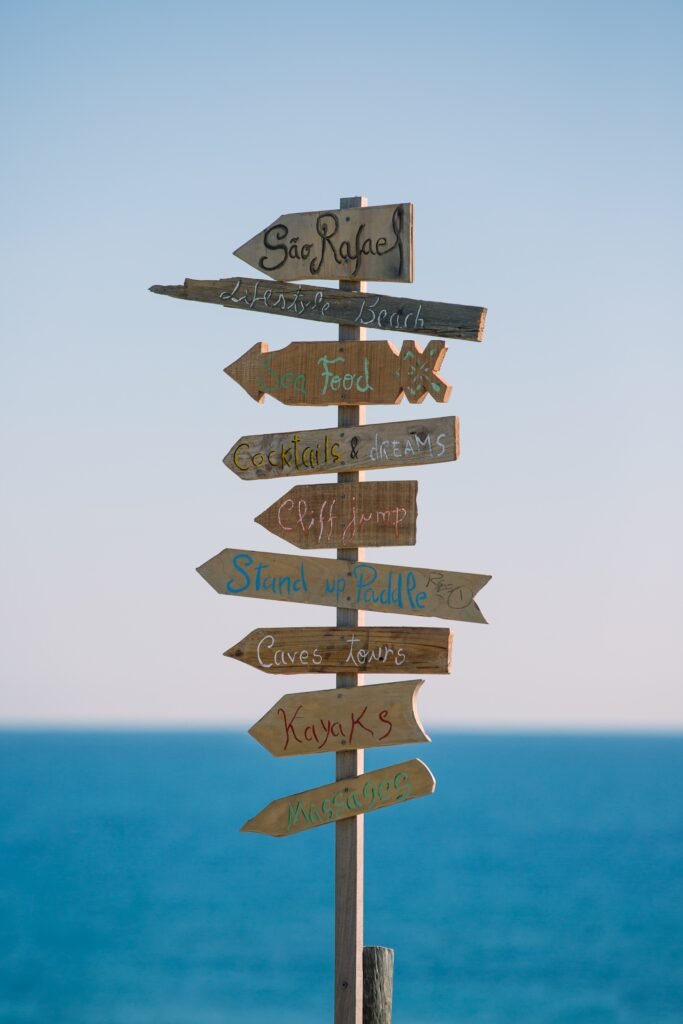Imagine this: You’ve just booked your dream vacation, eager to escape the stresses of everyday life and immerse yourself in a new adventure. However, there’s one thing that threatens to put a damper on your trip – kidney stones. The excruciating pain and discomfort they bring are far from what you had in mind for your getaway. But fear not, because we’ve got you covered. In this article, we’ll provide you with essential tips and tricks to prevent kidney stones while traveling, ensuring that you can make the most of your journey without any unwanted health issues.
Understanding Kidney Stones
Kidney stones are hard deposits that form in your kidneys. They are made up of mineral and acid salts which crystallize and stick together. Kidney stones can vary in size and shape, ranging from as small as a grain of sand to as large as a golf ball. These stones can cause severe pain and discomfort when they pass through the urinary tract.
What are kidney stones?
Kidney stones are mineral and acid salt deposits that form in the kidneys. They can vary in size and shape, ranging from tiny kidney stones that pass through the urinary tract easily to larger stones that may require medical intervention to remove.
Types of kidney stones
There are different types of kidney stones, each named after the main substance they are composed of:
-
Calcium stones: These are the most common type of kidney stones and are made up of calcium oxalate or calcium phosphate.
-
Uric acid stones: These stones form when there is an excessive amount of uric acid in the urine. They are more common in people who have gout or a diet high in purines.
-
Struvite stones: Also known as infection stones, these form as a result of urinary tract infections.
-
Cystine stones: These stones are rare and occur in people with a genetic disorder that causes their kidneys to excrete too much of certain amino acids.
Causes of kidney stones
Various factors can contribute to the formation of kidney stones, including:
-
Dehydration: When you don’t drink enough fluids, your urine becomes more concentrated, increasing the risk of stone formation.
-
Diet: Consuming high amounts of sodium, oxalate, and animal protein can increase the likelihood of developing kidney stones.
-
Family history: If a close family member has had kidney stones, you may be more prone to developing them.
-
Certain medical conditions: Conditions such as gout, urinary tract infections, and certain metabolic disorders can increase your risk of developing kidney stones.
Symptoms of kidney stones
The symptoms of kidney stones can vary depending on the size and location of the stone. Common symptoms include:
-
Severe pain in the back or side: This pain can be sudden and intense, often referred to as “renal colic.”
-
Blood in the urine: Kidney stones can cause blood to appear in the urine, giving it a pink or red color.
-
Frequent urge to urinate: You may feel the need to urinate more frequently than usual.
-
Nausea and vomiting: Some people with kidney stones may experience nausea and vomiting as a result of the pain.
Prevention Strategies
While kidney stones can be a painful condition, there are steps you can take to help prevent their formation. Incorporating these prevention strategies into your daily routine can help keep kidney stones at bay.
Stay hydrated
One of the most effective ways to prevent kidney stones is to drink plenty of water throughout the day. Aim to drink at least 8 glasses of water daily to ensure proper hydration. This helps dilute the substances in the urine that can lead to stone formation and promotes regular flushing of the urinary tract.
Watch your diet
A healthy diet plays a crucial role in preventing kidney stones. Here are some dietary tips:
-
Limit sodium intake: High sodium levels can increase the amount of calcium in your urine, leading to the formation of calcium stones. Avoid excessive salt intake by opting for fresh, whole foods instead of processed and packaged items.
-
Limit oxalate-rich foods: Certain foods, such as spinach, rhubarb, beets, and chocolate, are high in oxalate, a substance that can contribute to the formation of calcium oxalate stones. While these foods can still be included in your diet, it’s best to consume them in moderation.
-
Control calcium intake: It is important to maintain a balance of calcium in your diet. Consuming too much calcium can increase the risk of calcium stone formation, while insufficient calcium intake can lead to other health issues. Consult with a healthcare professional to determine the appropriate amount of calcium for your specific needs.
Manage uric acid levels
If you are prone to uric acid stones, it is essential to manage your uric acid levels. This can be achieved by:
-
Avoiding excessive protein: Foods high in animal protein, such as red meat and seafood, can increase uric acid levels in the urine. Limit your intake of these foods and opt for lean protein sources like poultry and legumes.
-
Maintaining a healthy weight: Obesity and being overweight increase the risk of uric acid stone formation. Focus on maintaining a healthy weight through a balanced diet and regular exercise.
Control blood pressure
Hypertension, or high blood pressure, is a risk factor for kidney stone formation. Follow these guidelines to manage your blood pressure:
-
Adopt a low-sodium diet: Reducing sodium intake can help control blood pressure levels. Avoid processed and restaurant foods, as they tend to be high in salt.
-
Increase potassium-rich foods: Potassium helps counteract the effects of sodium on blood pressure. Include foods like bananas, oranges, spinach, and avocado in your diet.
Avoid excessive vitamin C
While vitamin C is essential for overall health, excessive doses can be harmful, especially for those prone to kidney stone formation. High doses of vitamin C can increase the concentration of oxalate in urine, potentially leading to the formation of calcium oxalate stones. Stick to the recommended daily allowance of vitamin C or consult a healthcare professional for guidance.

This image is property of images.unsplash.com.
Travel Planning
Traveling with kidney stones requires some extra preparations to ensure your health and well-being while on the go. Here are some tips for planning a trip with kidney stones:
Consult your doctor
Before embarking on your trip, it’s crucial to consult with your doctor. They can assess your condition, provide specific recommendations, and advise on any necessary precautions to take while traveling.
Ensure you are in stable condition
Make sure that your kidney stones are stable and not causing any severe symptoms before traveling. If you are experiencing intense pain or other complications, it may be best to postpone your trip until you are in a more stable condition.
Pack necessary medications
Remember to pack an ample supply of your prescribed medications, including pain relievers, if approved by your doctor. It’s important to have your medications readily available in case you experience any discomfort or pain during your trip.
Carry medical documents
Bring copies of your medical records, including your diagnosis and any relevant test results. This will be helpful if you require medical attention while away from home, as it provides healthcare professionals with essential information about your condition.
Research medical facilities at your destination
Before traveling, research the medical facilities available at your destination. Locate nearby hospitals or clinics that specialize in urology or kidney-related issues. Knowing where to seek medical help in case of an emergency can provide peace of mind and swift access to the care you may need.
Get travel insurance
Consider obtaining travel insurance that covers any potential medical emergencies or complications related to your kidney stones. This will help ensure that you receive appropriate medical care without incurring high costs while traveling.
Hydration Tips
Staying hydrated is crucial to prevent kidney stone formation and maintain overall health. Here are some hydration tips to keep in mind:
Drink plenty of water
Water is the best way to stay hydrated and flush out toxins from your body. Aim to drink at least 8 glasses of water per day, or more if you are in a hot climate or engaging in physical activity.
Avoid excessive caffeine and alcohol
Although beverages like coffee, tea, and alcohol might be tempting while traveling, they can contribute to dehydration. Limit your intake of caffeine and alcohol as they can increase urine production, leading to fluid loss.
Carry a reusable water bottle
To ensure you always have access to water, carry a reusable water bottle with you wherever you go. This way, you can refill it as needed and maintain your hydration levels throughout the day.
Set reminders to drink water regularly
With the excitement of traveling, it’s easy to forget to drink enough water. Set reminders on your phone or watch to remind yourself to take regular sips of water. This will help you stay hydrated even when you’re busy exploring new places.

This image is property of images.unsplash.com.
Food Choices
Eating a kidney-friendly diet while traveling can help prevent further complications and discomfort. Here are some food choices to consider:
Follow a kidney-friendly diet
A kidney-friendly diet focuses on consuming foods that are beneficial for your kidneys and overall health. Include plenty of fruits, vegetables, whole grains, and lean protein sources. Avoid or limit high-sodium, high-oxalate, and high-animal protein foods.
Avoid high oxalate foods
If you are prone to developing calcium oxalate stones, avoid or limit foods rich in oxalate, such as spinach, rhubarb, beets, and chocolate. Be mindful of your food choices and opt for low-oxalate alternatives.
Limit salt intake
Eating foods high in sodium can increase calcium levels in your urine and contribute to stone formation. Opt for fresh, unprocessed foods and stay away from salty snacks and fast-food meals.
Choose low-fat options
To maintain a healthy weight and reduce the risk of stone formation, choose low-fat or non-fat dairy products and lean sources of protein. Avoid excessive consumption of red meat and opt for poultry, fish, and plant-based proteins.
Medication Management
Proper management of your medications is crucial when traveling with kidney stones. Here are some medication management tips for your trip:
Keep medications easily accessible
Ensure that your medications are easily accessible, whether you are traveling by plane, train, or car. Keep them in your carry-on bag or a purse so that you can easily access them as needed.
Pack extra doses
Pack an adequate supply of your prescribed medications, including extra doses in case of any delays or unexpected circumstances. This will ensure that you have enough medication throughout your trip.
Keep prescriptions and medical information
Carry a copy of your prescriptions and any necessary medical information. It’s helpful to have these documents in case you need to refill your prescriptions or visit a healthcare professional while away from home.
Consult your doctor before traveling
Before your trip, schedule a consultation with your doctor to discuss your medication regimen, any potential side effects, and any necessary adjustments for your travel plans. They can provide specific guidance based on your unique situation.

This image is property of images.unsplash.com.
Maintaining Urine Flow
Maintaining urine flow is essential for preventing kidney stone complications. Here are some tips to promote healthy urine flow while on the go:
Frequent urination
Try to urinate frequently, especially when you feel the urge. Holding urine for extended periods can contribute to stone formation and urinary tract infections.
Avoid holding urine for too long
If possible, avoid holding your urine for an extended period. Find restrooms or suitable facilities to relieve yourself when needed, even if it means making frequent stops during your travels.
Consider using a urinal or portable toilet
For long journeys or situations where restroom access is limited, consider carrying a urinal or portable toilet. This can provide a convenient and sanitary solution to relieve yourself when necessary.
Urinate before and after long journeys
Before embarking on extended journeys, be sure to empty your bladder by urinating. Similarly, after long periods of sitting or restricted movement, make it a priority to find a restroom and empty your bladder to maintain healthy urine flow.
Managing Pain and Discomfort
Kidney stones can cause pain and discomfort, particularly when they pass through the urinary tract. Here are some strategies to help manage pain and discomfort while traveling:
Pack pain relief medication
Bring pain relief medication, such as nonsteroidal anti-inflammatory drugs (NSAIDs) or prescription pain medication, as approved by your doctor. Having these on hand can provide relief in case you experience pain related to kidney stones.
Use hot or cold packs
Hot or cold packs can help alleviate pain and discomfort caused by kidney stones. Pack a portable heating pad or cold pack to use as needed.
Practice relaxation techniques
When experiencing pain or discomfort, practicing relaxation techniques can help manage the symptoms. Deep breathing exercises, meditation, or listening to calming music can assist in easing your discomfort while on the go.
Access emergency medical care if needed
If your pain becomes severe or you experience other alarming symptoms, such as fever or inability to urinate, seek emergency medical care immediately. It’s important not to ignore any potential complications and to prioritize your health.
Stress Management
Traveling can be exciting but also stressful, which can exacerbate kidney stone symptoms. Here are some stress management tips to help you stay calm and relaxed during your trip:
Plan your itinerary wisely
Avoid overloading your travel itinerary with activities and allow for sufficient rest periods. Plan your days in a way that allows you to enjoy your trip without pushing yourself too hard.
Allow for breaks and rest
Take breaks and allow yourself time to rest during your travels. Trying to do too much in a short period can increase stress levels and potentially worsen your kidney stone symptoms.
Practice stress-reducing activities
Engage in stress-reducing activities that you find enjoyable, such as yoga, meditation, or taking leisurely walks. These activities can help you relax, unwind, and manage stress levels while on the go.
Take care of your mental health
Prioritize your mental well-being by engaging in activities that bring you joy and practicing self-care. Whether it’s reading a book, listening to music, or connecting with loved ones, taking care of your mental health can help alleviate stress and improve your overall travel experience.
Stay Informed and Prepared
To ensure a safe and enjoyable trip, it’s crucial to stay informed and prepared for any potential complications related to kidney stones. Here are some tips to help you stay informed and prepared:
Know the signs of kidney stone complications
Be familiar with the signs and symptoms of kidney stone complications, such as severe pain, fever, chills, or blood in the urine. Prompt recognition of these symptoms can help you seek appropriate medical attention if necessary.
Be aware of local medical resources
Research the local medical resources at your destination, including hospitals, clinics, and pharmacies. Make a note of their locations and contact information so that you can quickly access healthcare services if needed.
Carry emergency contact information
Have emergency contact information readily available, including the contact details of your healthcare provider and any emergency contacts. Keep this information easily accessible in case of emergencies.
Stay updated on your condition
Stay informed about your kidney stone condition and any new developments or treatment options. Regularly consult with your doctor or urologist for updates on your condition, and ask any questions or concerns you may have.
By understanding kidney stones, following prevention strategies, planning your travels, staying hydrated, making kidney-friendly food choices, managing your medications, maintaining urine flow, managing pain and discomfort, practicing stress management, and staying informed and prepared, you can minimize the impact of kidney stones while traveling. Remember to always consult with your healthcare provider for personalized advice and recommendations before embarking on any trip.

